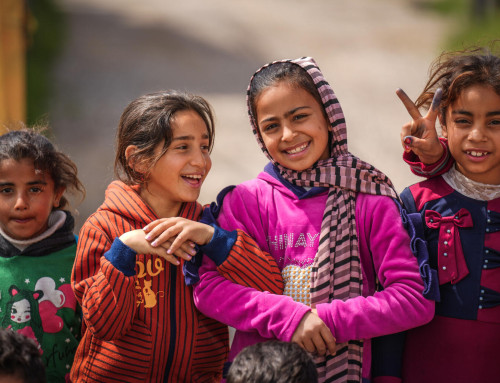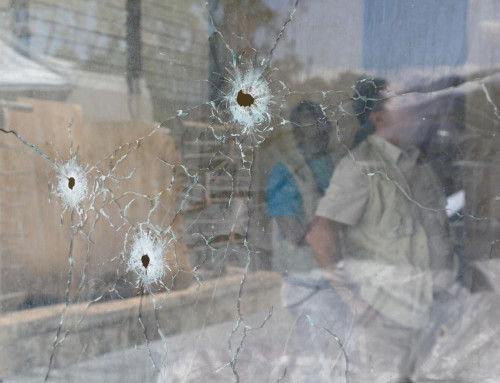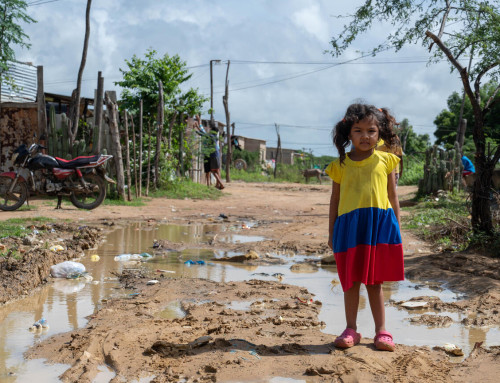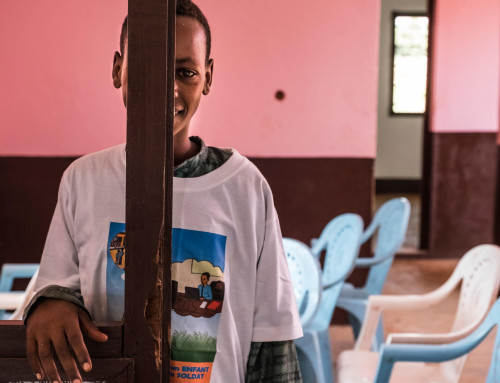SITUATION OF CHILDREN IN ARMED CONFLICT CITED
Press Briefing
At a Headquarters press briefing today, Olara Otunnu, the Special Representative of the Secretary-General for Children and Armed Conflict, announced a new and groundbreaking development in United Nations peacekeeping missions — the deployment of Child Protection Advisers whose primary role will be to help ensure that the protection of children’s rights and the consolidation of peace were priority concerns throughout peacekeeping processes.
As civilian populations trapped in war-torn countries continued to suffer, it was now more important than ever for peacekeepers and child-protection advocates to join forces to maximize the protection of children in the context of armed conflict, he said. The development was the culmination of a systematic attempt on the part of his Office to integrate the protection of children’s rights into the peace and security agenda of the United Nations.
He said the first priority of the Child Protection Advisers would be to advise relevant peacekeeping operations in the field. It would also be a priority, under the overall authority of the Special Representative of the Secretary-General, to coordinate with key United Nations agencies, non- governmental organizations and national authorities to ensure that the interests of children were not marginalized on such critical issues as policy-making, resource allocation and setting priorities.
Today’s announcement represented a concrete follow-up to Security Council resolution 1261 (1999) on children and armed conflict adopted last August, he continued. But, in order for the child protection dimension of peacekeeping to be taken seriously, every mandate, where appropriate, should explicitly refer to the rights and protection of children, and Child Protection Advisers should be attached to those operations. It was also important to organize more systematic training for both military and civilian peacekeeping personnel.
Mr. Otunnu told correspondents that he was pleased to announce that the first Child Protection Adviser had been deployed last month and had now assumed her position with the United Nations Mission in Sierra Leone (UNAMSIL). Two other Child Protection Advisers had also been appointed for the mission in the Democratic Republic of the Congo and should be leaving shortly to take up their positions. He had also been in discussions with the heads of the United Nations missions in Kosovo and East Timor to explore the possibility of having Advisers join the respective humanitarian efforts in those countries. He hoped that future Child Protection Adviser candidates would be typically drawn from relevant United Nations agencies, such as the United Nations Children’s Fund (UNICEF) and the Office of the United Nations High Commissioner for Human Rights, as well as non-governmental organizations and development agencies that had experience with promoting children’s rights.
He went on to point out that while not every peacekeeping operation needed to have Child Protection Advisers, his Office, in cooperation with the
Otunnu Briefing – 2 – 22 February 2000
Department of Peacekeeping Operations, would examine each mission closely and endeavour to have Advisers available wherever children had been gravely affected.
The Child Protection Advisers will have as their responsibility all aspects of the impact of war on children, Mr. Otunnu said. In situations like the Democratic Republic of the Congo, where fighting continued, their main concern would be protecting children in the midst of hostile activity. In places like Sierra Leone, Kosovo and East Timor, where fighting had ended, the interests of the Advisers would be quite different. In those situations, the Advisers responsibilities would be to ensure that the key issues, such as demobilization, the return and reunion of families, rehabilitation of child soldiers, and the rehabilitation of social facilities that benefited children, such as schools and hospitals, would be fully incorporated into all relevant peace-building policies and programmes.
A correspondent asked whether the decision to announce the Child Protection Advisers was at all influenced by reports of the staggering death rate of children orphaned by the rapid spread of the AIDS virus in Africa. Mr. Otunnu said that, while the Advisers main emphasis would be on children in conflict, it also happened that many countries facing the most devastating effects of the AIDS epidemic were also countries at war. “So, we are obviously concerned about the intersection between war and the AIDS virus — where war has encouraged the spread of HIV/AIDS and compounded the problem within certain countries. “
Another correspondent wondered if the Child Protection Advisers would have the responsibility of policing the activities of the peacekeepers. There had been reports in the past that peacekeepers had often hired child prostitutes. “We will be very vigilant to ensure that peacekeepers set the best possible example for protecting these vulnerable members of society”, Mr. Otunnu said. In that connection, one of the main objectives of Security Council resolution 1261 specifically called for the training of peacekeepers. His Office, along with the Department of Peacekeeping Operations, “were of the same mind” on the issue that a major role for the Advisers would be to help with training on the ground and to establish a system of discipline and accountability.
Finally, he told correspondents that his Office was now attempting to translate the objectives of Security Council resolution 1261 into concrete initiatives on the ground. “Bringing the Security Council into this process is most important”, he said. Whenever possible, the Council would be encouraged, when designing a mandate, to include explicit references to the protection of children. That would be one of the keys to making the protection of the rights of children central to United Nations peacekeeping.
.





